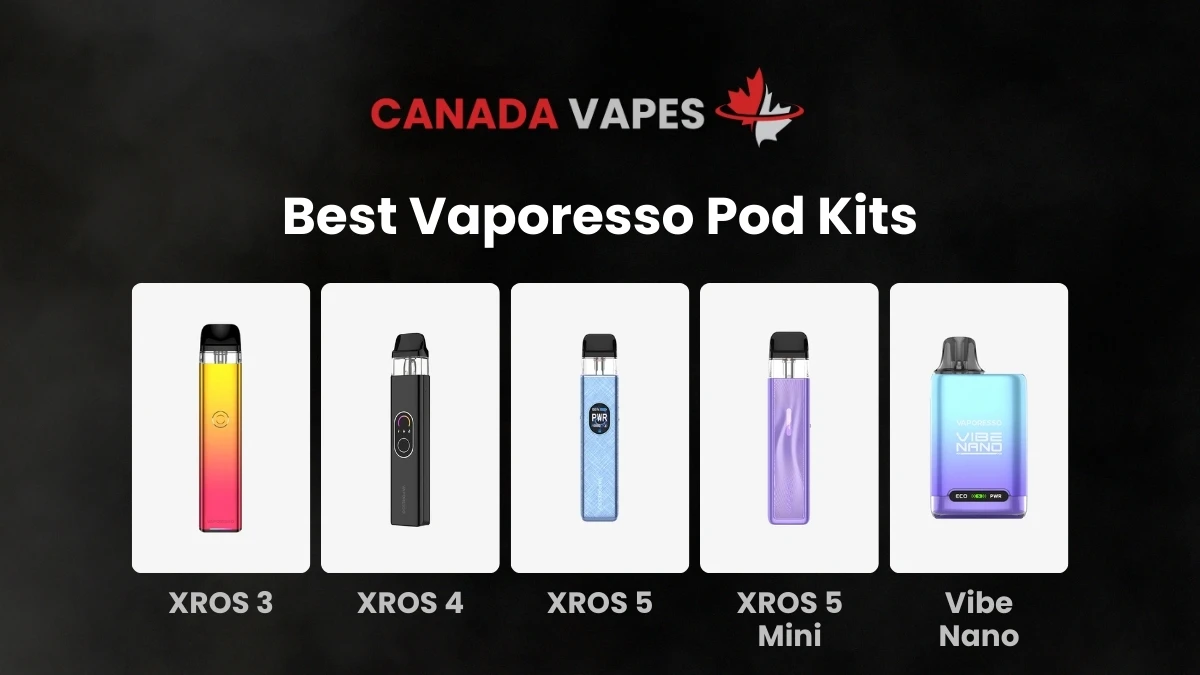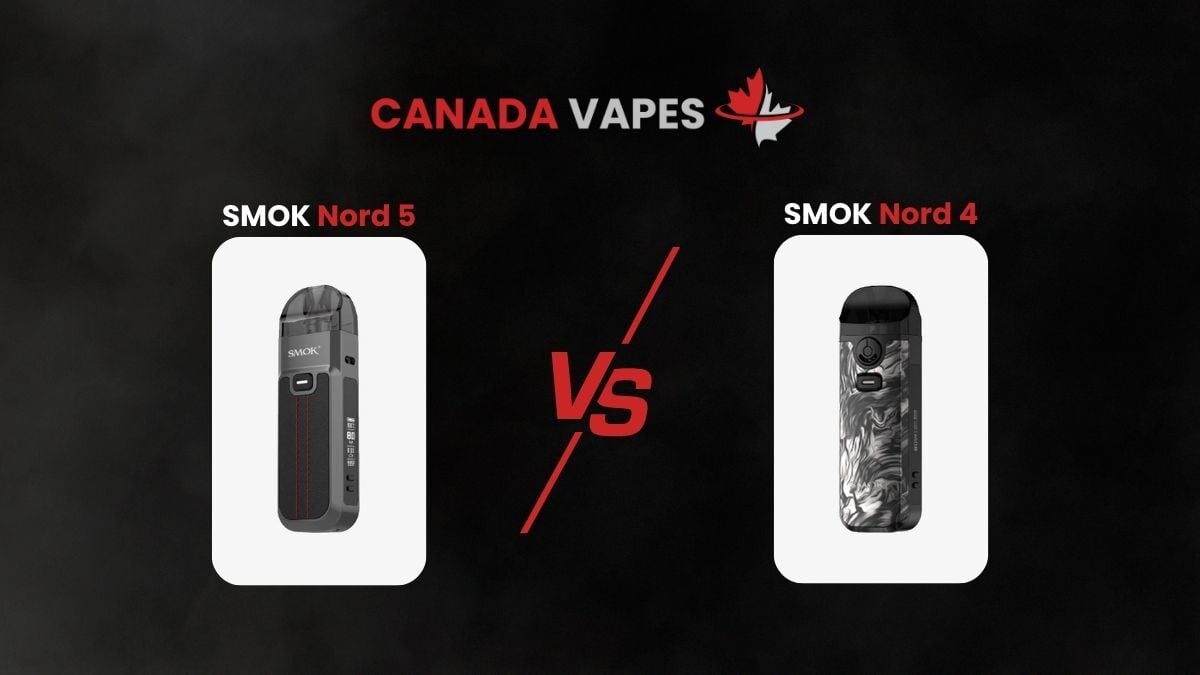At Canada Vapes, we are proud to be the premier vaping supply store for vaping enthusiasts across British Columbia. Whether you’re new to vaping or a seasoned veteran, we’ve got you covered. With our unbeatable selection, competitive pricing, and commitment to service, we aim to be BC’s top choice for all things vaping.
Vaping Laws and Regulations in British Columbia
As Canada’s westernmost province, British Columbia is known for its magnificent natural landscapes. As a BC vaper, it’s important to understand the provincial laws around vaping:
Minimum Age and Identification:
- The legal age for purchasing vapour products in British Columbia is 19 years.
- Acceptable forms of identification for purchasing these products include a passport, driver’s license with photo and birthdate, or an identification card issued by a government agency with photo and birthdate.
Specific Prohibitions:
- Various definitions are provided regarding where vapour products are not to be sold, including definitions for “building or structure,” “campus,” and “public body.”
- Certain places are exempt from the prohibition, such as healthcare providers’ spaces, government-leased areas, and certain designated spaces within retail premises.
- Restrictions are specified for smoking or using vapour products near doorways, windows, or air intakes, with a prescribed distance of 6 meters. However, transit shelters are exempt from this rule.
- Patios associated with public places are exempt from smoking and vapour product restrictions under specific conditions.
Exemptions and Accessories:
- Exemptions exist for persons in care or residents in designated areas within care facilities, and hotels, and for sampling e-substances within specific conditions.
Administrative Penalties:
- The Act and regulations prescribe certain provisions for administrative penalties, including prohibitions, display or promotion of vapour products, minimum package size, and warning signs.
- The administrator enforces administrative penalties through orders and notices, and payments must be made by specified methods.
Our team stays up-to-date on provincial and local vaping regulations so we can provide accurate information empowering BC vapers to enjoy vaping confidently and legally.
Premium Vape Mod Selection for British Columbia
We carry an unrivalled selection of vape mods suitable for every experience level. Beginners can explore simple pod systems like the SMOK Novo 2X for an easy transition into vaping. Intermediate users will appreciate mid-range mods like the Innokin Coolfire Z80 for greater customization and power.
Advanced vapers can choose high-end devices like the Voopoo Argus GT II to enjoy ultimate customization and functionality. With hundreds of options from leading brands, we have the perfect device to suit your needs. Our knowledgeable staff can make recommendations based on your vaping preferences. Discover your next favourite mod with Canada’s top selection.
Satisfying E-Juices and Vape Liquids in British Columbia
Finding an all-day vape e-liquid you love can make all the difference in your vaping experience. That’s why we’re passionate about crafting premium, complex e-juice flavours at Canada Vapes. We use only the highest quality ingredients and nicotine to create smooth, satisfying vape juices tailored specifically to the tastes of Canadian vapers.
Explore tempting fruit flavours, sweet desserts and creamy custards, refreshing mints and menthols, bold coffees and tobaccos, and much more. With the array of flavours we offer, you’re sure to find a new favourite e-liquid.
Buy CBD & Dry Herb Vapes in British Columbia
Expand your vaping options with our lineup of CBD and dry herb vapes. In British Columbia, CBD vape products with less than 0.3% THC are legal for adults 19+. We carry top CBD brands like Black Widow and Yocan. For dry herbs, we offer convection/conduction devices from Vivant, Herbva and others. Explore aromatic blends without combustion through vapes like the Vivant Ambit, Yocan Evolve, Herbva 5G and more. Trusted brands we offer include Black Widow, Yocan, Herbva, and Vivant. Discover the latest CBD and dry herb vapes at Canada Vapes British Columbia.
The cannabis laws in British Columbia:
- Age Restriction: Individuals must be 19 years or older to buy, use, possess, or grow non-medical cannabis in British Columbia (B.C.).
- Authorized Sellers: Non-medical cannabis is sold exclusively at government-run stores, licensed private retailers, and the B.C. government’s online store. The BC Liquor Distribution Branch operates public retail stores and an online store. The Liquor and Cannabis Regulation Branch monitors and licenses private retailers. These retailers are permitted to sell cannabis and cannabis accessories but cannot sell liquor, tobacco, or other items.
- Excise Stamp: Legal non-medical cannabis in B.C. has an excise stamp attached to its packaging, indicating its legality. Each province and territory has a different coloured cannabis excise stamp for products sold in their jurisdiction.
- Possession Limits: Adults aged 19 and above can carry up to 30 grams of dried non-medical cannabis or its equivalent in public places. In non-public places, such as homes, the possession limit is 1,000 grams per household, based on the expected yield from four cannabis plants.
- Public Use: Adults may smoke or vape cannabis in public spaces where tobacco smoking and vaping are allowed, but restrictions apply. Prohibited locations include playgrounds, sports fields, public buildings, workplaces, public patios, and within six meters of areas such as bus stops and air intakes.
- Medical Cannabis: Health Canada regulates medical cannabis and specifies guidelines and roles for healthcare practitioners to prevent misuse.
Buy Disposable Vapes in British Columbia
Experience ultimate portability and convenience with our wide selection of disposable vape brands. We carry top options like CV Bar, Vuse, Vuse Ultra, Allo Flavour Beast, and STLTH. No charging or maintenance is needed – just open the package and start vaping! Disposables are perfect for vaping on the go. Enjoy access to all the latest disposable vape options at Canada Vapes British Columbia.
Complete Your Vaping Kit with Premium Accessories
Take your vaping experience to the next level by outfitting your setup with our wide range of accessories. We stock essential gear like vape batteries, chargers, replacement coils, tanks, and drip tips to keep your device performing optimally.
You’ll also find handy gadgets like lanyards, cases, and vape carry cases to keep your vape secure. With our premium inventory, you can customize your kit exactly how you like it.
Vape Products Delivered Directly to Your BC Home
Shop online with us anytime and enjoy the convenience of quick vape delivery right to your doorstep. We provide affordable, speedy shipping throughout British Columbia. Most major metro areas can receive deliveries within just 2-3 days. Outlying regions take between 3-5 business days on average. We always use discreet packaging for your privacy too. Skip the trip to the vape shop and order online to get your vaping essentials delivered directly to you!
Experience BC’s Top Online Vape Shop
At Canada Vapes, our mission is to provide British Columbia vapers with the best online vape shop experience through our vast product selection, outstanding customer service, and commitment to the local vaping community. Shop now to enjoy personalized recommendations, fast shipping, hassle-free returns, and other perks. Discover why we are the preferred online vendor for vapers across BC.
Take the Next Step in Your Vaping Journey
Ready to discover your next favourite e-juice flavour or find the perfect new vape mod? Browse our unparalleled online inventory or visit our store today. Our vape experts are standing by to help match you with the ideal products to suit your vaping needs. We commit to 100% customer satisfaction as we help you enjoy the very best vaping has to offer. We can’t wait to make you part of the Canada Vapes family!
At Canada Vapes, we proudly offer comprehensive vape delivery services across the stunning province of British Columbia, ensuring our customers in every major city can enjoy their favourite products with ease. Whether you reside in the bustling city of Vancouver, the scenic locales of Kelowna and Saanich, or vibrant communities like Surrey, Burnaby, and Richmond, our reliable delivery service is here for you. We also extend our services to Abbotsford, Chilliwack, Kamloops, Langford, Maple Ridge, Nanaimo, New Westminster, North Vancouver, Port Coquitlam, Victoria, Prince George, Coquitlam, Delta, and Langley Township, ensuring a seamless experience for vapers throughout the region. Count on Canada Vapes for fast, professional delivery to your doorstep, wherever you are in British Columbia.









